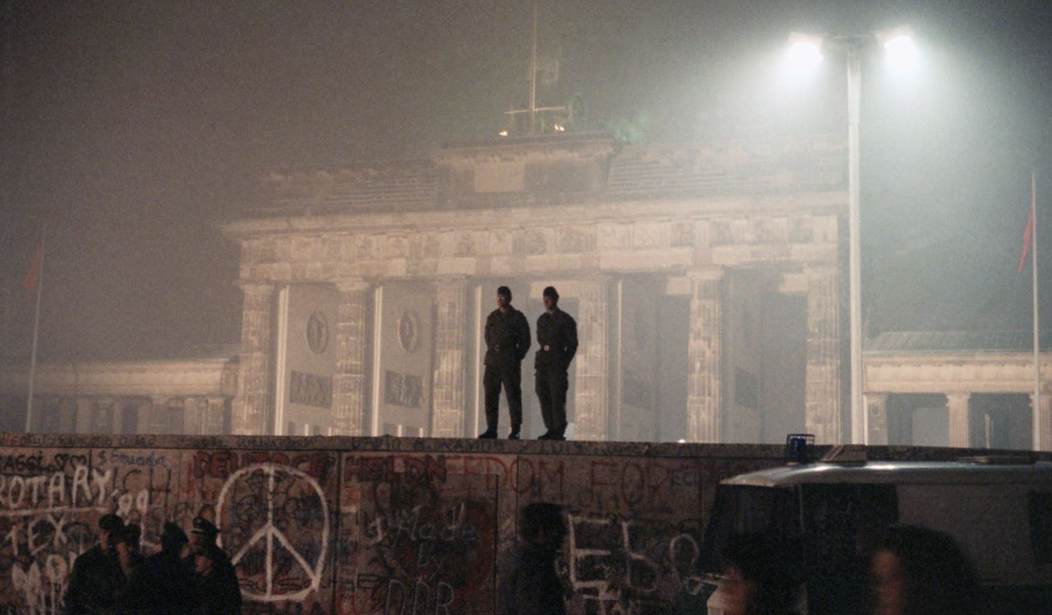Today, as socialist ideas once again gain popularity around the world, people should remember an unintentional, large-scale experiment that confirmed the superiority of capitalism over socialism. If even the Germans couldn’t make socialism work, so the saying goes, that says a lot about this idea. This story is now depicted in the film Life Behind the Berlin Wall, which was awarded the “Audience Choice Award for Short Films” at the Anthem Film Festival, the largest libertarian film festival in the world.
Germany’s partition into two states was not part of the occupying powers’ original plan, it was a result of the Cold War that broke out between the Soviet Union and the western Allies.
The Communist Party soon emerged as a dominant political force in the East. Despite the assurance that “it would be wrong to impose the Soviet system on Germany,” that’s exactly what happened over the following years. Much like in the Soviet Union itself, the economy in the Soviet-occupied zone was increasingly planned by government officials.
Contrary to the regime’s proclaimed intention to overtake the West German economy, in the late 1950s per-capita consumption in East Germany (also known as the GDR) was still 12 percent below pre-war levels and 50 percent below West Germany’s per-capita consumption. More and more people fled from the socialist East to the capitalist West. In August 1961, the East German leadership took the desperate step of building a wall to stop more people from joining the 2.74 million who had already left since 1949.
In West Germany, Economics Minister Ludwig Erhard introduced the market economy. The economic policy course set by Erhard’s market-economy initiative was more instrumental in fostering the Federal Republic’s ‘economic miracle’ than the Marshall Plan, which provided aid for the suffering population of Europe after the war. Of the program’s total volume of $13.1 billion, about 25 percent went to the UK, another 20 percent to France and 10 percent each to Western Germany and Italy.
Recommended
When the time came in 1989 to take stock, 67.8 percent of West Germans owned a car, compared to only 54.3 percent of East Germans. West German cars – BMW, Mercedes, Volkswagen, etc. – were of a significantly higher quality than the East German Trabant and Wartburg models. And, while West Germans were able to visit a car dealership at any time to buy a car produced at home or abroad, GDR citizens had to wait between 12.5 and 17 years for their vehicles.
In 1989, 12 percent of East Germans owned a computer, while the percentage was three times higher in West Germany (37.4 percent). In the GDR, only the homes of the privileged few – 16 percent of the total population, most of them public servants and senior employees – boasted telephones. Across West Germany, coverage stood at 99.3 per cent.
The difference between the two economic systems was nowhere more visible than in the housing market. The GDR froze rents, as Adolf Hitler had done before. In 1989, when the GDR was at its end, 65 percent of all apartments were still being heated with coal stoves, 24 percent had no toilet and 18 percent lacked a bathroom. As many as 40 percent of apartment buildings were severely damaged, and 11 percent were completely uninhabitable.
In the field of environmental protection, too, a comparison between the GDR and West Germany shows the superiority of capitalism. One of the world’s biggest climate killers was, in fact, a country that had abolished capitalism – the GDR. In 1989, the GDR emitted more than three times as much CO2 for each unit of GDP than West Germany.
Although the market economy in West Germany was very successful, the country increasingly abandoned Ludwig Erhard’s policies and the state intervened more and more in the economy. From being Europe’s economic powerhouse, Germany had been reduced at the end of the 1990s to bringing up the rear in the economic growth tables. Rising unemployment accentuated the need for an urgent response to a problem the then chancellor, the Social Democrat Gerhard Schröder, had long been aware of. Between 1999 and 2005, the rate for the top income tax bracket was gradually reduced from 53 percent to 42 percent and the labor market was deregulated. More market and less state quickly became the motto.
But Germany’s free-market reforms are now more than 20 years old. No more reforms were implemented in the era of Angela Merkel. Quite the opposite. Schröder’s reforms were partially reversed. And under the mantra of mitigating climate change, Merkel pursued policies that increasingly strengthened the role of the state and weakened the role of the market. Germany's current Minister of Economic Affairs, Robert Habeck of the Greens, is pursuing exactly the opposite of Ludwig Erhard’s policies. More and more state regulation has put Germany in a difficult situation and today it is at the bottom of the OECD tables for growth.
Rainer Zitelmann has just published the books The Power of Capitalism and How Nations Escape Poverty.























Join the conversation as a VIP Member